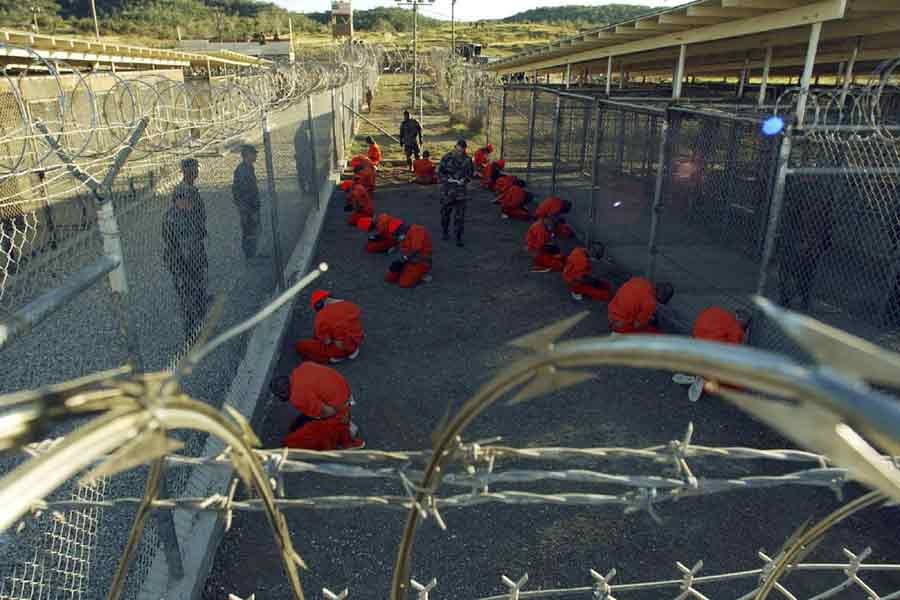Majid Khan, a Pakistani man who has described in graphic detail his torture by the Central Intelligence Agency in the aftermath of the Sept 11, 2001, attacks on the United States, has been transferred from the Guantanamo Bay US detention facility in Cuba to Belize, the Pentagon said on Thursday.
Khan, 42, admitted in 2012 to conspiring with members of the al Qaeda Islamist militant organisation responsible for the 2001 attacks to commit murder as well as providing material support for terrorism and spying and had been serving as a government witness since, according to US officials.
According to Reuters, he was captured in Pakistan and held at an unidentified CIA "black site" from 2003 to 2006 before being placed at the detention camp at the US naval base at Guantanamo Bay.
In a statement issued through his legal team, Khan welcomed what he called a second chance in life.
"I deeply regret the things that I did many years ago, and I have taken responsibility and tried to make up for them. I continue to ask for forgiveness from God and those I have hurt. I am truly sorry," Khan said.
Khan was the first Guantanamo detainee released since last October, leaving 34 detainees - down from a peak of 800 - at the facility, with 20 others already deemed as eligible for transfer to another country, according to US officials.
There were 40 detainees at Guantanamo when President Joe Biden, a Democrat, took office in 2021. Biden has said he hopes to close the facility. The federal government is barred by law from transferring Guantanamo detainees to US mainland prisons.
"We remain dedicated to a deliberate and thorough process focused on responsibly reducing the detainee population at Guantanamo Bay and ultimately closing the facility," White House Press Secretary Karine Jean-Pierre told reporters.
Khan's transfer was accepted by Belize's Cabinet and paid for by the US government, Belize's Foreign Minister Eamon Courtenay said.
"Khan is not a terrorist. He has fully recanted, accepted responsibilities for his action and asks Allah for forgiveness," Courtenay told a news conference in the Central American country.
Courtenay, who met with Khan upon his arrival in Belize, said the released man is free to live the rest of his life there if he chooses.
In a 39-page statement that Khan read aloud to a US military sentencing commission in 2021, he described his treatment at the CIA site. Khan told of being beaten, subjected to the simulated drowning technique called waterboarding and raped anally by objects.
Khan said he was hung from a beam by his hands for days, naked except for a hood over his head, and that guards there would "throw ice water on my naked body every hour or two and placed a fan to blow directly on me."
He also said he had been deprived of sleep and food, kept isolated and shackled in a cell with music blaring 24 hours a day. This went on for three years, from the time of his arrest in Karachi in 2003 until his 2006 Guantanamo transfer, Khan said.
Established by Republican President George W Bush in 2002 to house foreign terrorism suspects following the 2001 hijacked plane attacks on New York and the Pentagon that killed about 3,000 people, the Guantanamo camp came to symbolise the excesses of the US "war on terror" because of harsh interrogation methods that critics have said amounted to torture.
Defense Secretary Lloyd Austin notified US lawmakers about his intent to transfer Khan last year, the Pentagon said.
The Center for Constitutional Rights, the legal group representing Khan, welcomed his freedom.
"Belize has done an outstanding job to prepare for his resettlement, and their success serves as a model for other countries to accept men who no one thinks should remain at Guantanamo but who cannot return to their home countries for humanitarian reasons," said Wells Dixon, a lawyer with the group.


